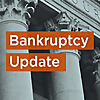
Bankruptcy Update
112 FOLLOWERS
Current news and analysis of key bankruptcy cases and developments in US and cross-border matters. Patterson Belknap Webb & Tyler LLP is a New York City based law firm with more than 200 lawyers delivering a full range of services across over 20 practice groups in litigation and commercial law.
Bankruptcy Update
7M ago
Bankruptcy Update
7M ago
Bankruptcy Update
7M ago
Bankruptcy Update
7M ago
Bankruptcy Update
7M ago
Bankruptcy Update
7M ago
Bankruptcy Update
7M ago
Bankruptcy Update
7M ago
Bankruptcy Update
7M ago
Bankruptcy Update
1y ago
We have previously blogged about Bartenwerfer v. Buckley, No. 21-908, a Supreme Court case concerning the scope of the fraud exception to the dischargeability of debts in bankruptcy. Section 523 of the Bankruptcy Code exempts from discharge “any debt . . . for money, property, services, or an extension, renewal, or refinancing of credit, to the extent obtained by . . . false pretenses, a false representation, or actual fraud. . . .” 11 U.S.C. § 523(a)(2)(A). Bartenwerfer considers whether the fraud required by this section need be the debtor’s fraud or fraud known to the debtor. On February 22 ..read more